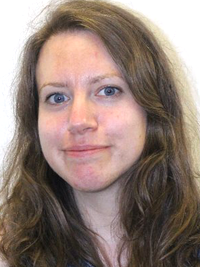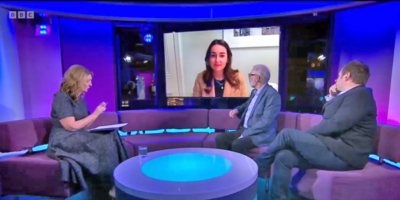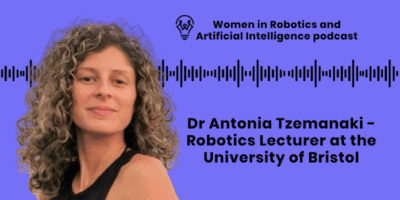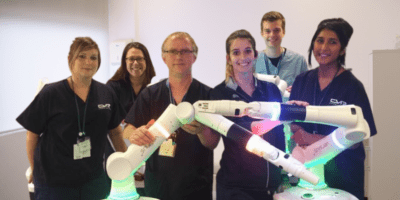Dr Jasmine Desmond is an analyst at National Grid ESO, working on developing models for the National Grid’s Future Energy Scenarios. Jasmine programs in a variety of languages, including Python. She joined the organisation, having worked on computational projects spanning chemistry, physics and the life sciences at the University of Warwick, before moving to Basel, Switzerland to work on a pharmaceutical-focused computational project, before returning to the UK.

“Diversity of thought is vital in everything we do at National Grid ESO. Gathering a wide range of opinions, thoughts and ideas enables us to arrive at the best solutions. Making sure that everyone’s voice is heard is central to that.”
Tackling the big challenges
I have a PhD in computational chemistry and spent several years working as a research scientist, including time in Switzerland, Austria and Denmark. I worked on things spanning from quantum mechanics to developing models that help us better understand insulin and make it so that it could be more stable without the need for refrigeration in warmer countries. Another of my big projects was about understanding antimicrobial resistance, and how, as time goes on, penicillin is becoming less effective, and what needed to be done to address this.
I then became interested in another of the biggest challenges of our day — how we can reach Net Zero carbon emissions to help us tackle climate change, so I decided to move to National Grid ESO, working to develop models to help achieve this.
National Grid ESO is the electricity system operator for Great Britain. We move electricity round Great Britain’s system to keep homes and businesses supplied with the energy they need 24/7, 365 days a year from our control room, ensuring that the right amount of electricity is where it’s needed, when it’s needed – always keeping supply and demand in perfect balance second-by-second. (We don’t generate or sell electricity – that’s down to other companies.)
Role on a day-to-day basis
On a day-to-day basis, I work with the other analysts, as well as engaging with other colleagues and stakeholders to understand the future technologies that are emerging.
It’s my job to develop an understanding of what they need from their computational models before I set about developing them. I do a lot of coding, in Python, so I can develop tools for the analysts to use. A key project I’ve worked on is developing the Spatial Heat Model, a regional model looking at the way heat is going to develop, as well as the technologies behind heat over the next 27 years up to our Net Zero deadline in 2050.
There’s a range of different ideas that may be adopted, including using hydrogen, air source heat pumps, or a system called district heating, where we take energy released as heat from a range of energy sources and connect these to energy consumers through a system of highly insulated pipes. There’s a multitude of different technologies available, with more options being developed all the time.
The models that I develop underpin the results we present in our Future Energy Scenarios. We’re just about to launch a big publication on those in the coming weeks.
It’s an exciting team to be part of. I also had the opportunity to work on the Day Ahead Strategy Team, working alongside my colleague, Amy Weltevreden, who featured in Womanthology’s Women in Energy and Sustainability issue back in February. I was part of the team advising and supporting colleagues in the control room on decisions that needed to be made over the winter.
Coding Café
Another of the projects I’m very proud of is something I set up called the Coding Café. It’s a weekly group bringing together people from departments across the business. We’ve got over 200 people taking part, so that’s one in five staff in the business.
It’s all about peer-to-peer learning and bringing out all the skills that we already have in the organisation by connecting people and creating a sense of community. There’s already been a series on Python and we’re planning one on AI and machine learning.

In addition to this, the organisation is also developing an AI Centre of Excellence. This will expand data science capacity and capabilities in the ESO, as well as in the wider energy industry, opening up a whole new world of possibilities, where AI and machine learning are used to deliver the insights and tools required to meet Net Zero targets. The AI Centre of Excellence will sit alongside the Coding Café so we’ll be collaborating and discussing ways that we can further develop and grow.
Diversity of thought
Diversity of thought is vital in everything we do at National Grid ESO. Gathering a wide range of opinions, thoughts and ideas enables us to arrive at the best solutions. Making sure that everyone’s voice is heard is central to that.
Getting into AI and tech careers
There’s a huge number of free resources out there. The first thing that I’d say is not to be intimidated by it or to start thinking it’s something that you couldn’t do. Approach it with an open mind.

You can use Google to find a whole host of reputable websites giving introductions to AI. There’s even university-associated material that’s publicly available too. Check out Open Learn (free learning from the Open University) for a whole host of articles, courses, videos on AI, and pretty much every other subject you might be able to think of for that matter.
Python is an extremely useful way into coding too as it’s an open-source language, so there’s no paywalls or barriers to learning.
If you are interested in careers in the energy sector, then do check out our opportunities at National Grid ESO. We are recruiting for a range of roles at the moment for all stages of your career.
Coming up next
I’m incredibly excited about the journey that we’re on with AI and the opportunity to apply some of these new methods in the future.
I’ll be doing more work developing the heat project I mentioned and thinking about the different areas that impact, like hydrogen supply modelling, for example. The next year is going to be busy, but it’s also going to be exciting and fun.
Main header: Image by rawpixel.com on Freepik




